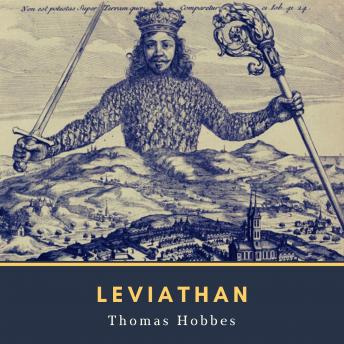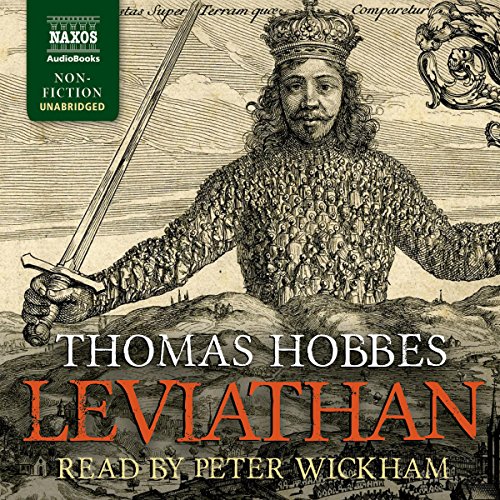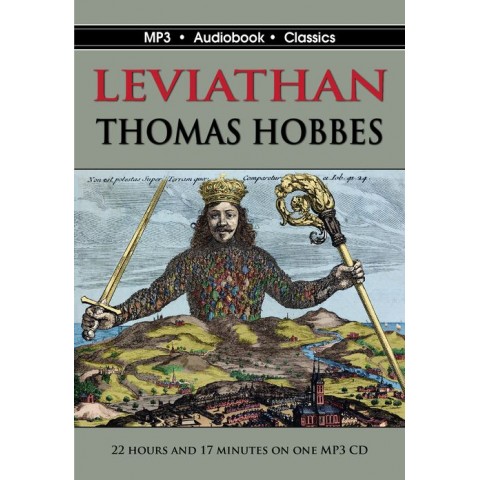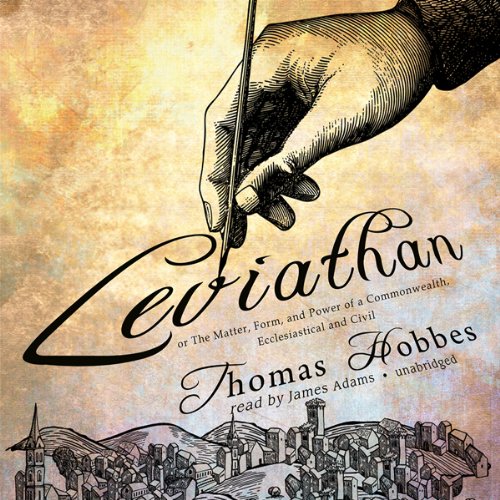Thomas Hobbes’ “Leviathan” audiobook delves into the nature of human society and governance. It explores the social contract and the necessity of a strong central authority.
“Leviathan,” written by Thomas Hobbes, is a profound exploration of human nature and political theory. Published in 1651, it remains a cornerstone in political philosophy. Hobbes argues that, in a state of nature, life would be “nasty, brutish, and short” without a powerful government.
He advocates for a social contract where individuals cede some freedoms to a sovereign authority to ensure peace and security. This audiobook version brings Hobbes’ ideas to life, making it accessible for modern listeners. It offers insights into the foundations of modern political systems and the rationale behind strong governance.

Introduction To Leviathan
Thomas Hobbes’ “Leviathan” explores political philosophy and the nature of human society. This audiobook brings Hobbes’ influential work to life. Dive into the profound ideas that shaped modern political thought.
Early Life Of Thomas Hobbes
Thomas Hobbes was born in 1588 in England. He grew up during a time of great change. He studied at Oxford University. Hobbes loved to read and learn new things. He was very curious about the world. He later became a tutor to wealthy families. This allowed him to travel and meet important people.
The Political Turmoil Of Hobbes’s Time
Hobbes lived during the English Civil War. This was a time of great conflict. People fought over who should rule the country. Many were scared and confused. Hobbes saw this chaos and wanted to find a solution. He wrote about how to create peace and order. His ideas were very important. They helped shape modern political thought.
The Genesis Of Leviathan
Thomas Hobbes wanted to explain human nature. He saw many conflicts and wars. These events made him think deeply. He believed a strong ruler was necessary. He wanted peace and order in society. His ideas were very bold for his time.
Hobbes wrote Leviathan during a tough time. He worked in Paris while escaping the English Civil War. Writing took him about a year. He used simple language for clear understanding. He also discussed complex ideas. His work was very detailed and thought-provoking.
Key Philosophical Themes
Thomas Hobbes believed in a “state of nature”. This is a condition without laws or government. People are free to do what they want. This leads to chaos and conflict. Hobbes thought life would be “nasty, brutish, and short”. People would always fight for survival.
Hobbes proposed the social contract theory. People agree to give up some freedoms. They do this to gain security and order. This agreement forms the basis of society. A ruler or government enforces the rules. People obey the laws to avoid chaos.
Leviathan is a metaphor for a powerful ruler. Hobbes used it to describe a strong government. This government keeps peace and order. The ruler has absolute power. People must obey the Leviathan to live in harmony.
Structure And Content Overview
Part I of Leviathan explores human nature. Hobbes believes humans are naturally selfish and desire power. He says life without government is “solitary, poor, nasty, brutish, and short”. This part discusses psychology and the motivations behind human actions. Hobbes explains concepts like desire, fear, and reason.
Part II focuses on the creation of society. Hobbes introduces the idea of a social contract. People agree to give up some freedoms for security. A powerful ruler enforces this contract to maintain order. Hobbes calls this ruler the Leviathan.
Part III combines politics and religion. Hobbes discusses the role of the Church in the state. He argues that religious authority should not interfere with civil laws. The sovereign holds power over both religious and political matters.
Part IV warns against false teachings. Hobbes describes the Kingdom of Darkness as ignorance and superstition. He believes these lead to chaos and conflict. Proper understanding of science and philosophy can prevent this darkness.
Leviathan’s Reception And Critiques
The book made a huge splash when it came out. Many people were shocked. They had never read anything like it before. Some thought it was brilliant. Others called it dangerous. It sparked many debates and discussions. People talked about it everywhere. It became a controversial topic in society.
Today, scholars still study the book. They try to understand its ideas. Some think it has important lessons for politics. Others see it as a historical piece. It is still relevant in many ways. People read it in schools and universities. It helps them learn about philosophy and government.
Influence On Political Philosophy
Thomas Hobbes’ work, Leviathan, was groundbreaking. It brought a new perspective on political philosophy. Many thinkers of his time had different views. John Locke, for instance, believed in natural rights. Hobbes, on the other hand, thought people needed a strong ruler. His ideas were in stark contrast with Rousseau’s views on freedom. These comparisons highlight the uniqueness of Hobbes’ thoughts. His focus on social contract theory set him apart.
Hobbes’ influence is seen even today. Modern political systems reflect his ideas. The concept of a powerful state comes from his work. Many scholars study his theories to understand authority. His belief in a strong leader is still relevant. Political scientists often refer to Hobbes in their research. His work has shaped the way we think about government and power. The legacy of Leviathan continues to impact modern political thought.
Leviathan In Literature And Popular Culture
Many books mention Hobbes’ Leviathan. Writers use it to show ideas about power. Some novels even name characters after Hobbes. This shows his influence on their stories.
George Orwell wrote about similar ideas in his books. Aldous Huxley and Ray Bradbury also looked at power and control. They studied Hobbes’ ideas for their own writing.
Films and TV shows often show ideas from Leviathan. Dystopian movies use his thoughts on power. They show how leaders can control people. Some films name their villains after Hobbes.
TV series like Game of Thrones look at power struggles. They reflect Hobbes’ views on human nature. His work helps writers create complex stories.

Accessing The Leviathan Audiobook
Many narrators have recorded the Leviathan audiobook. Some narrations stand out for their clarity. Clear narrations make complex ideas easier to grasp. Consider options from Audible or Librivox. Professional recordings often provide a better experience. Listening to samples can help you choose the best version.
Find a quiet place to listen. Use headphones for better concentration. Take notes while listening. Pausing and rewinding can help understand difficult parts. Discuss the book with friends or online groups. This enhances understanding and retention. Revisit key sections to deepen your grasp of the material.

Conclusion
Thomas Hobbes’ “Leviathan” audiobook is a must-listen for philosophy enthusiasts. It offers deep insights into human nature and governance. Explore Hobbes’ timeless ideas and elevate your understanding of political theory. Don’t miss this chance to enrich your intellectual journey with this classic work.
Listen now and get inspired.



